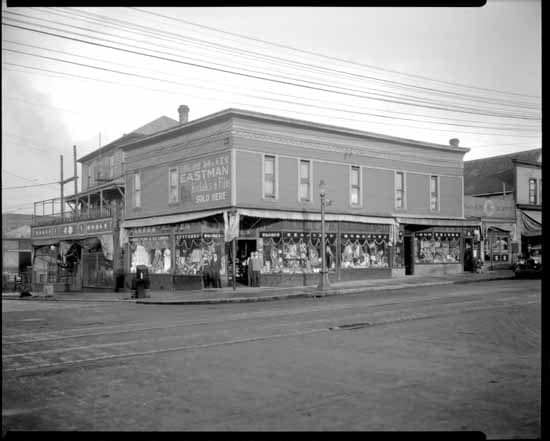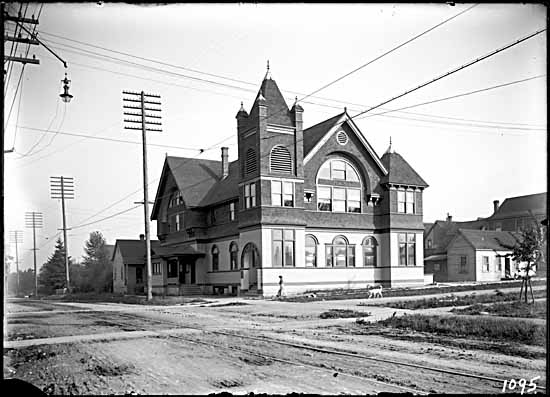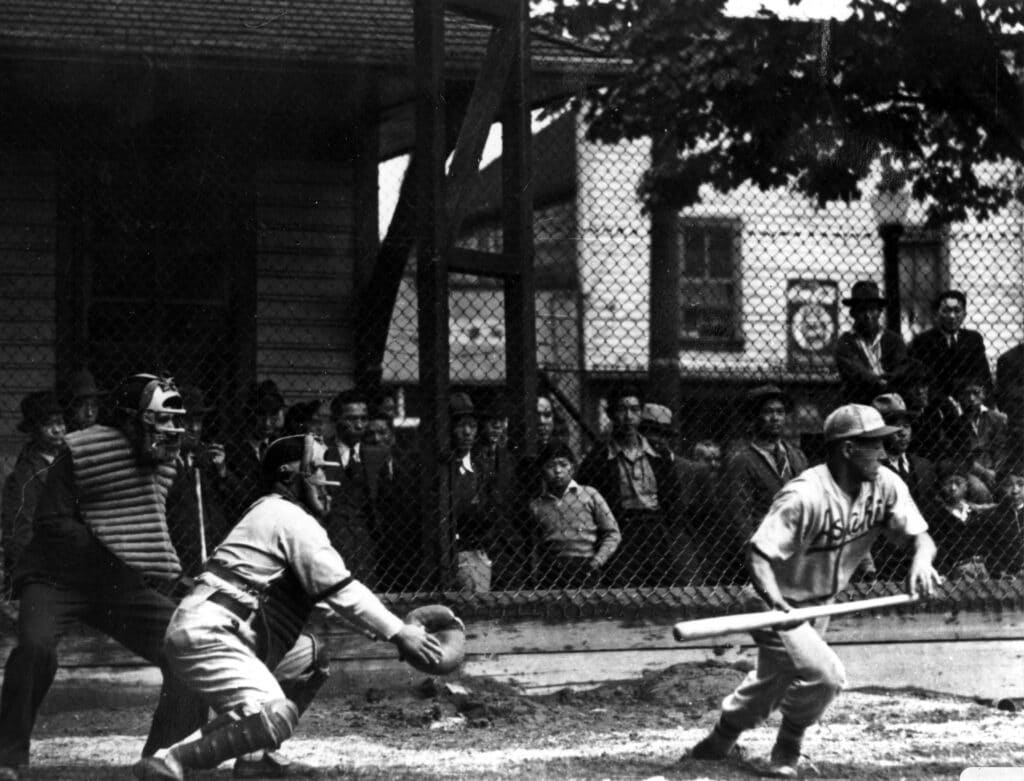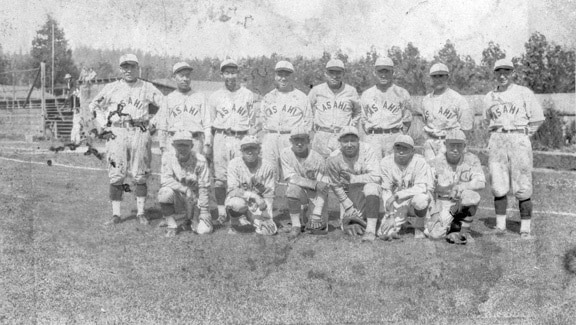The Morning Sun:
The Beginning of the Asahi
The year is 1914, and by this time almost 10,000 people of Japanese ancestry have immigrated to Canada. 95% of these Issei settled in British Columbia, where there was plenty of work in the agricultural and fishing industries which were similar to the fishing and farming villages they came from in Japan.
Powell Street in Vancouver’s Downtown Eastside became known as “Little Tokyo” or “Japantown” as many first generation (Issei) and second generation (Nisei) Japanese-Canadians settled there. The strong sense of community that was established in Little Tokyo was partly formed out of necessity, as many Japanese-Canadians faced racial discrimination from other Vancouver citizens.


Matsujiro Miyasaki, a shop owner in Japantown, decided to form a baseball team with the intention of eventually winning the Vancouver Terminal League. Miyasaki was the team’s first manager and coach, from 1914 to 1917. The team was made up of first and second generation Japanese-Canadians. Miyasaki named the team the Asahi, meaning “Morning Sun”.
The Asahi were not the first Japanese-Canadian baseball team. Baseball was very popular within the Vancouver community and several amateur teams formed. The most well-known of these teams was the Vancouver Nippon Baseball Club. Eventually, however, the Vancouver Nippon folded, and their best players joined the Asahi.


The Asahi’s home field was Oppenheimer Park (the Powell Street Grounds) central to Little Tokyo. During their first four years, the Asahi mostly played amateur Japanese teams or local teams such as the Longshoremen – a city team sponsored by the International Longshoremen’s Association, an early Mariners workers union. The Longshoremen were a multiethnic team themselves, and included Black and Indigenous players on their roster. No matter who the Asahi played against, these baseball games were very important to the Japanese-Canadian community, and businesses were often closed during games so that people could attend. The games were a great way to raise community spirits and form bonds both within the Japanese community and with Vancouver residents of all races, which was quite varied due to Vancouver’s status as a port-city.












